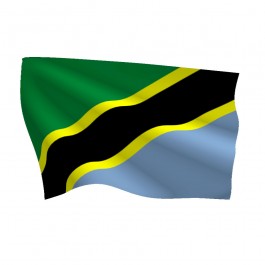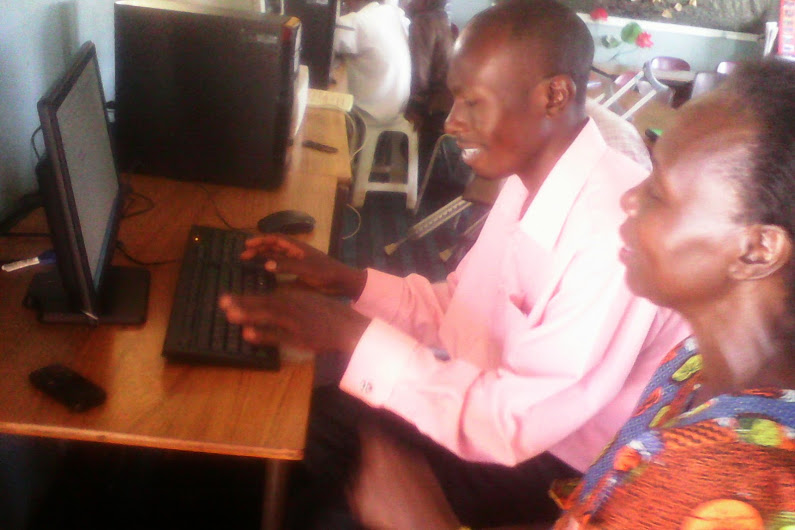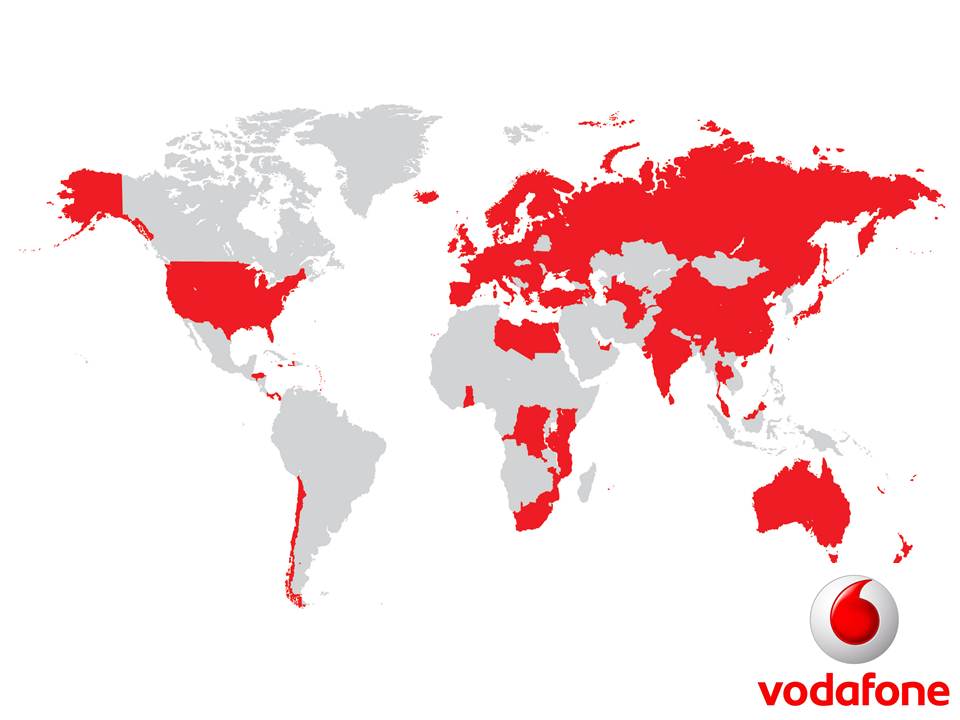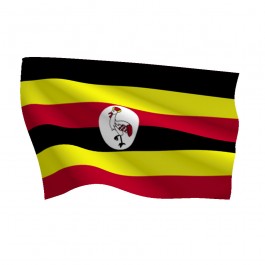By Juliet Nanfuka
Tanzania’s port of Dar es Saalam is one of the landing stations of the Eastern Africa Submarine Cable System (EASSy). However, the country’s internet penetration rate is relatively similar to those of its landlocked neighbours such as Uganda and Rwanda. A total of 9.3 million people of the population of 45 million accessed the internet in 2013. The country has a teledensity of 61 phones per 100 inhabitants, which translates into 27.6 million mobile subscriptions.
In a fast changing socio-political, economic and technological landscape, the extent of freedoms enjoyed by Tanzanian citizens both online and offline is being stunted by government practices and colonial laws.
In June 2014, British owned telecommunications company Vodafone, which operates locally as Vodacom, disclosed that in 2013 the government of Tanzania made 98,765 requests for local subscribers’ data. According to the firm’s Law Enforcement Disclosure Report, this was the highest number of government requests made among the eight African countries where it operates. It should be noted, however, that Vodafone could not publish the requests made by Kenya and South Africa due to legal restrictions.
The company also disclosed that it had not implemented the technical requirements necessary to enable lawful interception of communications in Tanzania and had not received any demands from authorities for interception assistance. However, the country’s Prevention of Terrorism Act 2002 requires service providers to “intercept and retain a specified communication or communications of a specified description received or transmitted, or about to be received or transmitted by that communication service provider” for purposes of obtaining evidence of commission of terrorism-related offences. This law permits the admission in court of information sourced through interception.
While the 2002 law makes it permissible for the state to snoop on citizens’ communications, other laws dating as far back as the mid 1970s constrain transparency and citizens’ access to information. The National Security Act of 1970 makes it a punishable offence to investigate, obtain, possess, comment on, pass on or publish any document or information which the government considers classified.
Another Act dating from the same era is the 1976 Newspaper Act, which gives authorities powers to “exclude” any newspaper from operation in the “interest of the public”. In a 2012 case, the MwanaHalisi newspaper was banned indefinitely on allegations of publishing two seditious stories claiming that state intelligence officers were involved in the kidnapping and torture of a national strike leader. More recently in 2013, two other publications – the Mwananchi and the Mtanzania- were banned both offline and online for two weeks and three months respectively on instructions of the Directorate of Information. This followed accusations of publishing content aimed at provoking discontent between the government and public.
Although the country’s constitution provides for access to information, freedom of expression and assembly and the right to privacy, the existence of laws that sternly limit publication of government information and support interception of communications raises concern over the country’s online freedoms credentials. Besides, the absence of data protection and privacy laws to safeguard citizens’ information collected as part of mandatory subscriber registration makes online users’ vulnerable to state interference.
Nonetheless, recent government announcements of the drafting of three laws – the Cyber security Act, Data Protection Act and the Electronic Transacting Act – come as a positive step for the country in fighting cybercrime and promoting internet freedoms.
While these steps indicate some appreciation of the complex relationship between data protection and online freedom, there remain many uncertainties about free speech and press freedom in the face of interception, draconian and unclear laws, and harsh penalties – especially with vague state transparency.
Read more on the practices, legislative environment, and threats to online freedoms in Tanzania in the 2014 State of Internet Freedom in Tanzania Report prepared by CIPESA.
Promoting E-Governance and Citizen Participation in Mayuge District, Uganda
By Maria Nakirya
The Busoga Rural Open Source and Development Initiative (BROSDI) with support from the Collaboration on International ICT Policy for East and Southern Africa (CIPESA) has had ongoing training this year for Mayuge district local government officials and the local education community on the creation and use of blogs as tools for community reporting on governance and service delivery.
As part of an ongoing project that focuses on e-governance and citizen participation in the education sector, blogging was one of

the tools identified by citizens to reduce the information gap that currently exists between the schools community, parents and the local government.
BROSDI conducts several trainings in social media for varying community groups and individuals. However, this was the first time that training was conducted for a group of influential persons in the community who had limited computer experience. The group was composed of head teachers, teachers, community leaders and representatives of the community of parents.
The training was aimed at equipping participants with basic knowledge and skills in computer usage –including opening email accounts as basic requirement for blogging and registration for Individual Tax Identification Number (TIN).
Participants welcomed the training which also helped them open personal email accounts, a process that they noted was simple yet some of them had paid as much as UGX 20,000 (USD 8) to have email addresses opened for them by third parties.
A separate training was held for district officials. Participants in this training had some basic computer experience but little knowledge of blogging. However, they found it a very resourceful tool to link them and other district officials to the community they serve. They were able to read and appreciate the articles written by members of the community.
“If only we knew about this before, we would have not spent so much money.” Teacher Grace
“I have been passing at BROSDI, seeing people type on these machines but I didn’t know they can go this far.” A participant headteacher
A key outcome of both trainings was the realisation by beneficiaries that they had a lot of information and content to share which they previously did not know how to package for public consumption. This has greatly boosted their confidence levels and the
quality of blog entries produced. The blogs were shared on the project blog (http://visualizemayuge.wordpress.com) while others created their own blogs. All training participants were eager to post blog entries and encouraged district officials to visit the blog. To ensure a wider audience, they further suggested having the blog link integrated to the district official website.
“I have a daughter abroad who gave me a telephone with all internet settings activated but did not know what to use it for. All I do is to use it for phone calls. I did not know about this internet and that it can do wonders. Will the whole world be able to read about my contribution?” Asks a participant teacher during a training session.
“I didn’t know that I would interact with the community in a different way and I think this works especially in our area where coming to the district is a big problem.” Noted a teacher after a training session
The trainings are part of CIPESA’s wider iParticipate project. In partnership with BROSDI as well as the Northern Uganda Media Club (NUMEC) and eSociety Kasese, ongoing activities are aimed at using ICTs to facilitate better delivery of government services to citizens, empower citizens through access to information, and improve interactions between citizens and public officials.
The project is supported by the Swedish Development Agency (Sida) and the Swedish Programme for ICT in Developing Regions (Spider).
Vodafone Reveals Government Requests for Subscriber Information
By Ashnah Kalemera & Juliet N. Nanfuka
The true extent of governments’ surveillance and monitoring of citizens’ communications across the world remains largely unknown. This is despite legislative rights provisions for privacy and increased calls for data protection of citizens in their communications.
Last month, Vodafone became the first telecomuminications company to reveal the extent of government surveillance of its subscribers. In its Law Enforcement Disclosure Report, the company revealed that governments in some of the 29 countries in which it operates – including in Africa – are requesting its subscribers’ data sometimes without warrants. In addition, government agencies also listen in on subscribers’ conversations and monitor their whereabouts through wires connected to the Vodafone networks.
However, the British company and world’s second largest mobile phone operator could not disclose the full extent of surveillance in nine of the countries it operates in due to legal provisions prohibiting the disclosure of information relating to government wiretapping and interception of communications.
Vodafone operates in eight African countries, namely the Democratic Republic of Congo, South Africa, Lesotho, Tanzania, Mozambique (in all of which it operates as Vodacom), Kenya (as Safaricom), Egypt and Ghana. In 2013, the company received around 100,000 requests from African governments for metadata such as phone numbers, addresses, device locations and times of calls and text messages.
The report cites the Tanzanian government as having made the highest number of requests – 98, 765. Authorities in Congo made 436 requests while in Lesotho 488 requests, were made.
Due to laws restricting the disclosure of information related to law enforcement, Vodafone was unable to publish statistics on the other five African states where it has operations.
According to the report, in Egypt, local criminal laws prohibit the disclosure of national security-related information and other matters related to law enforcement. In Ghana, unclear legal restrictions on access to, transfer and disclosure of electronic records meant that Vodafone was unable to publish information on the demands made. “We have asked the [Ghana] authorities for guidance: however, we have not yet received a reply.” said the report.
Vodafone was also unable to publish statistics related to the Kenyan government’s request for individual communications data due to unclear provisions in the Official Secrets Act and the National Intelligence Services Act. Unclear legal provisions in Mozambique meant that the same statistics could not be published.
Similarly, South Africa’s Regulation on Interception of Communication and Provision of Communication-related Information Act prohibits the disclosure of the fact that any demand for lawful interception or communications data has been issued under the Act. Accordingly, Vodafone did not publish any statistics for the country.
The legal provisions preventing Vodafone from indicating the exact number of government requests for its subscriber information, instances of lawful interceptions or even any indication of interception capabilities, is telling of the degree to which some governments will go to hide the extent of their surveillance.
In the report, Vodafone disclosed that it had not implemented the technical requirements necessary to enable lawful interception in Congo, Kenya, Lesotho, Ghana, Tanzania and Mozambique and as such had not received any demands from those authorities for lawful interception assistance.
Vodafone Communication Interception and Data Requests in Africa
(Source: Country-by-country disclosure of law enforcement assistance demands Report)
| Country | Communications meta data requests | Implementation of technical capacity for lawful interception |
| Democratic Republic of Congo | 436 | None |
| Egypt | Disclosure of information is unlawful | |
| Ghana | Disclosure of information is unlawful | None |
| Kenya | Disclosure of information is unlawful | None |
| Lesotho | 488 | None |
| Mozambique | Disclosure of information is unlawful | None |
| South Africa | Disclosure of information is unlawful | |
| Tanzania | 98,765 | None |
Vodafone reported that similar to Egypt and South Africa, the disclosure of information related to interception of communications and government data requests was unlawful in India, Qatar, Romania and Turkey.
In Europe, Italy made the highest metadata requests to the company – a total of 605,601. This was followed by Hungary (75,938), Spain (48,679) and Portugal (28,145). The governments of Albania, Ireland and Malta made 7,667, 4,124 and 3,773 metadata requests respectively. Two requests were received from Belgium and three from France. From the South Pacific, 760 metadata requests were received from Fiji.
The report states that Australia, Germany, Greece, the Netherlands, New Zealand and the United Kingdom were the only countries whose authorities published statistics on interception of communications and requests for communications metadata.
Vodafone’s report brings to the fore the intermediary liability challenge faced by many other telecommunications service providers across the world. The company published its statistics in an effort to urge all states to publish annual data on the surveillance and monitoring of citizens via digital technologies. Indeed, a similar recommendation was made by a research report published in May 2014 on the State of Internet Freedoms in East Africa. The report revealed the use of legal and extra-legal means to snoop on citizens under the guise of national security in the six countries studied – Burundi, Ethiopia, Kenya, Rwanda, Tanzania and Uganda.
While Vodafone has broken its silence on this highly secretive issue, it remains to be seen whether other service providers will follow suit or whether governments will change their legal provisions to allow for increased transparency in surveillance.
SMS System Boosts Reporting of Human Rights Abuses in Tanzania
Growing the capacity of citizens and civic groups including human rights networks to use Information and Communication Technology (ICT) to foster free speech, human rights, access to information and open governance is one of the objectives of the ICT4Democracy in East Africa Network. Since April 2014, the Commission for Human Rights and Good Governance (CHRAGG) in Tanzania has conducted a campaign to raise awareness about the SMS for Human Rights system throughout Tanzania.
The system, which was launched on Human Rights Day in December 2012, has made it easier for citizens to report human rights violations to the Commission. In 2013, a total of 173,493 complaints were received through the system. Since then, the number of complaints filed with the Commission has averaged more than 100 per week compared to 10 per week prior to the system’s installation.
Given that CHRAGG has only four regional offices to cover a large country, the system has reduced the amount of time, inconvenience and cost to citizens for submitting complaints and following up on case progress, particularly for those in rural areas. The electronic case handling system has also eased the work of investigators by reducing their travel burden and enabling more efficient evidence gathering. Besides text message, the platform allows for video and image capabilities for complainants and informers.
The SMS for Human Rights System is a mobile phone based Complaints Handling Management Information System aimed at expanding CHRAGG’s case handling and tracking. An individual is able to file a complaint by texting the word ‘REPORT’ or ‘TAARIFA’ to the toll free number: +255 (0) 754 460 259. The individual receives a text message confirming receipt of the complaint. Thereafter, a follow up phone call is made by investigators at the Commission to obtain further information, authenticate the report and assign the individual a reference number. The same number can be used to track the progress of a complaint by texting the word ‘STATUS’ followed by the reference number.
However, although many complaints are received through the system, many citizens, particularly on the semi-autonomous island of Zanzibar, were not aware of its existence. With an estimated population of 45 million people, Tanzania has about 28 million mobile phone subscriptions representing a teledensity of 61 phones per 100 inhabitants.
The system’s awareness campaign launch in Zanzibar in April was officiated by CHRAGG’s Commissioner Zahor Kharmis. CHRAGG’s Director of Human Rights Francis Nzuki and Wilfred Warioba, the Head of Management Information System Unit demonstrated how the system works and fielded questions from the attendees who included journalists, representatives from civil society organisations and ordinary citizens.
The event was televised live on Television Zanzibar (TVZ) and broadcast on Coconut FM radio station. It was also featured on Zanzibar Broadcasting TV and Radio, Independent TV, Radio Coconut, Radio Chuchu, Radio Hits, Radio Zenj, Radio Alnoor and two local print newspapers.
Since the launch, two public awareness meetings have been held in the North Unguja and Urban West regions of Zanzibar island. Furthermore, five similar events have been held in Mtwara, KilwaKivinje, Pwani and Dar es Salaam regions on the mainland.
In addition to the meetings, over four million print leaflets have been distributed encouraging citizens to seek redress for human rights violations particularly in the areas of poor service delivery, police brutality, corruption and employment rights.
The awareness raising campaign is expected to cover at least 18 more regions in the coming months. It is expected to incorporate nationwide TV and radio talk shows as well as social media as part of its outreach campaign.
Established in 2001 in fulfillment of Tanzania’s national constitution, CHRAGG plays the dual role of an ombudsman and a human rights commission for the protection and promotion of human rights as well as good governance.
CHRAGG is a member of the ICT4Democracy in East Africa Network whose work is supported by the Swedish International Development Cooperation Agency (Sida) and the Swedish Programme for ICT in Developing Regions (Spider). The network is coordinated by the Collaboration on International ICT Policy in East and Southern Africa (CIPESA).
Uganda: When National Security Trumps Citizens’ Internet Freedoms
The Ugandan telecommunications sector was liberalised in 1998, resulting in an influx of service providers – there are currently four major mobile telecom operators and more than 30 Internet Service Providers (ISPs). The establishment of a Uganda Internet Exchange Point (UIXP) allows for local internet traffic routing, increased speeds and lower costs. The regulatory body reports a teledensity of 52 phones per 100 inhabitants and an internet penetration rate of 20%.
Ugandans have embraced social media as an alternative means of communication with their peers as well as for engaging with government. This is seen in the increase in the popularity of social networking sites such as Facebook, Twitter, LinkedIn, Youtube and Blogspot, which are ranked among the top 10 most visited websites in Uganda. As such the government has developed social media guidelines to aid its ministries, agencies and departments in communicating and engaging with citizens online.
However, as the telecommunications sector grows, so have the number of laws passed to regulate it. Some of these laws have drawn criticism from internet actors both locally and internationally due to their severity, infringement on human rights and contradictions with other existing legislation, including the constitution.
“No person shall be subjected to interference with the privacy of that person’s home, correspondence, communication or other property.”
Article 27 (2) of Ugandan Constitution
The use of ICTs in Uganda is threatened by the very laws that are meant to both protect citizens and ensure their rights. The Regulation of Interception of Communications Act, 2010, the Anti-Terrorism Act No.14 of 2002, the Anti-Pornography Act of 2014 and the Anti-Homosexuality Act of 2014 have undercurrents of surveillance, content filtering, and monitoring.
Although these laws are guised under provisions aimed to protect national security or fight cybercrime, in effect they may serve to silence voices critical to the state. Ultimately, these provisions are resulting in self-censorship by both ordinary online users and the media.
Provisions in the Electronic Transactions Act of 2011 limit the liability of ISPs for users’ content and do not require them to monitor stored or transmitted data including for unlawful activity. However, other laws place ISPs at a cross roads of service provision and protection of subscriber information. They are required to lawfully release users’ data to state agencies for purposes such as fighting terrorism and cybercrime. Moreover, the Anti-Pornography Act (2014) requires them to monitor, filter and block content of a pornographic nature.
In the absence of a data protection and privacy law, just like other countries in East Africa (State of Internet Freedom in East Africa), users’ data is vulnerable to mishandling and abuse by the state and ISPs. These vulnerabilities are also transferred to the offline world where freedom of expression and assembly have not been spared as seen in the limiting provisions under the Public Order Management Act, 2013.
It should be noted that the Ugandan government recently announced plans to draft a Data Protection and Privacy Bill. This is a positive step toward the protection of personal information and its use by the government and the private sector.
Read more in the 2014 Internet Freedom in Uganda Report prepared by CIPESA under the OpenNet Africa initiative. The report provides a status of the legislative environment and threats to internet freedoms in the country.





